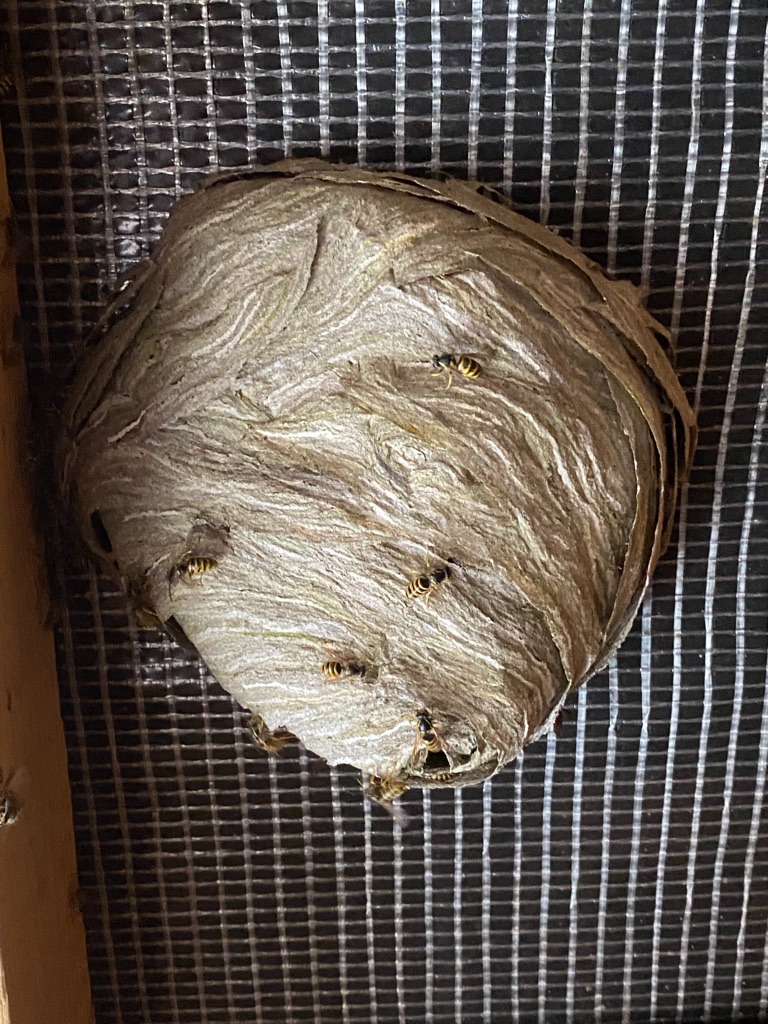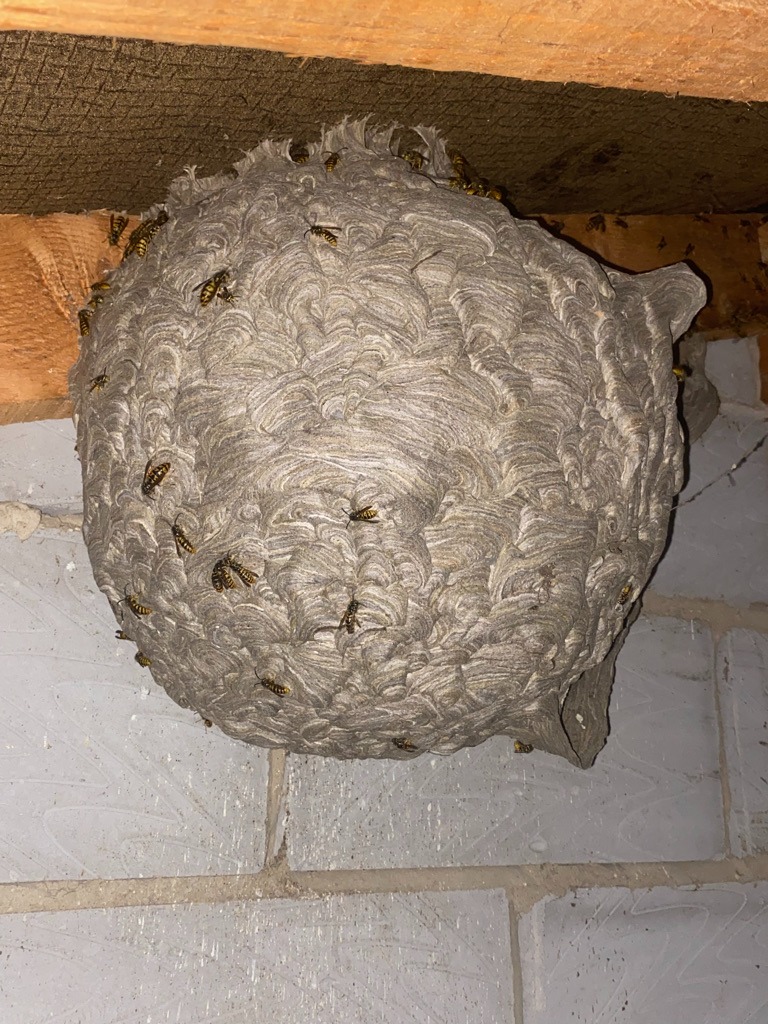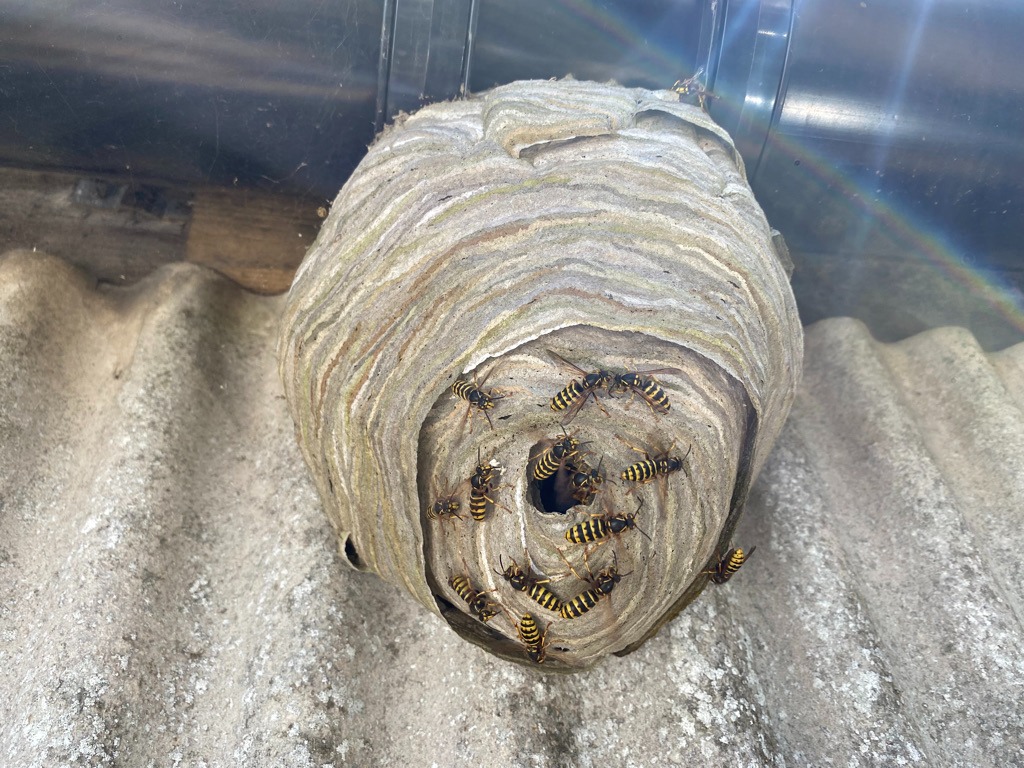How Long Do Wasps Live?
Wasps are often feared, mainly due to their painful sting. But these fascinating creatures do more than just bring an annoyance to your summer picnic. Let’s delve into the world of wasps and understand their lifespans, habitats, behaviours, diets, and crucially, the essential roles they play in our ecosystem.
More Busy than Bees?
First and foremost, wasps are remarkable architects, constructing intricate nests from a mixture of chewed wood pulp and saliva. These nests serve as protective housing for the developing larvae and the rest of the colony. A nest will be started by the Queen, who will build a nest the size of a golf ball on her own, to lay her first lot of eggs in. The nest will then increase in size, exponentially through the summer. Nests can reach up to around three feet in size, and are often located in loft spaces, garden sheds, or other sheltered spots. They are beautifully complex and serve as a testament to wasps’ industrious nature, with striations of colour showing from the different wood they forage to build the nest.
Are Wasps Pollinators?
If you’ve ever been stunned by the sight of a colourful bloom or enjoyed the taste of a juicy apple, you have wasps to thank for that. Wasps are incredibly efficient pollinators. While they might not possess the fuzzy bodies of bees, perfect for picking up pollen, their slender bodies and long legs allow them to reach into deeper flowers. As they flit from blossom to blossom, wasps inadvertently spread pollen, playing a critical role in plant fertilisation.
What do wasps feed on?
Wasps exhibit fascinating behaviours and display a varied diet. They are skilled hunters, preying on a wide range of insects, including flies, caterpillars, and spiders, thus acting as natural pest control. However, adult wasps are unable to digest insects so they take them back to the nest to feed to the larvae. In return, the larvae create a sugary, amino-rich substance for the adults to feed on,, and this fondness for sugary foods and drinks is why they become more noticeable during late summer BBQs, picnics, and outdoor gatherings. This love for sweet treats is actually a survival strategy for adult wasps, as by the end of summer, when their colonies stop producing larvae, the adults start to starve and become more desperate in their search for sugars, leading to more human encounters.
How Long Do Wasps Live?
But how long do these industrious creatures live? The lifespan of a wasp is dependent on its species and role within the colony. Worker wasps, which are all female, typically have the shortest lifespan, usually only living for about 12-22 days. Drone wasps, the males, live slightly longer, typically up to six weeks. The queen wasp, responsible for starting a new colony, has the longest lifespan, surviving up to one year. She spends the winter hibernating, only to emerge in spring to begin building a new nest and laying eggs.


What to do about a Wasp Nest?
Despite their valuable contributions to our ecosystem, wasps can become a nuisance or even a danger when their nests are located in close proximity to human dwellings or activities. Should you discover a wasp nest in or around your home, it’s vital not to attempt removal yourself. The inhabitants of the nest will fiercely defend it, and the result can be painful and potentially dangerous.
If you find yourself in need of professional wasp nest removal services, let us know. Our trained and experienced team ensures safe and efficient wasp nest removal, prioritising your families or employee’s safety.
How long do wasps live? Is it worth having them removed?
Remember, wasps are not just pests; they’re also protectors of our gardens and crucial players in our biodiversity. While their stings are unwelcome, their presence in our world is invaluable. However, when they pose a risk to your comfort and safety, trust in the professionals. Call IX5 Pest Control today on 01604 328545, or email [email protected] or use our simple contact form. We offer wasp services for both domestic and business premises in Northampton, Daventry, Rugby, Market Harborough, Towcester, Brackley, Wellingborough, Kettering, Corby, Olney and all of the surrounding areas. We also offer evening and weekend appointments at no extra cost.

